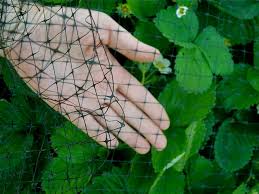
Maximizing Garden Success: The Essential Role of Garden Netting
Introduction: Gardening is a delightful pursuit, but it comes with its challenges, especially when it comes to protecting your plants from various threats. From hungry pests to unpredictable weather, maintaining a thriving garden requires strategic measures. Among these, garden netting emerges as a crucial tool, offering a range of benefits that contribute to the overall health and productivity of your garden. Let’s delve into the world of garden netting and discover how it can revolutionize your gardening experience.
1. Pest Management: One of the foremost advantages of garden netting is its effectiveness in pest management. Insects, birds, and small mammals can all pose a threat to your plants, devouring leaves, fruits, and vegetables with ease. Garden netting acts as a physical barrier, thwarting the efforts of these pests to access your precious crops. By covering your garden beds or individual plants with netting, you create a protective shield that allows your plants to flourish without constant threat.
2. Bird Protection: Birds are not only charming visitors to your garden but can also become voracious consumers of your harvest. Ripe fruits and tender shoots are particularly enticing to birds, making them a significant concern for gardeners. However, with the strategic use of garden netting, you can deter birds from feasting on your crops. The fine mesh of the netting prevents birds from reaching the fruits and ensures that your harvest remains intact for your enjoyment.
3. Weather Resilience: Nature’s whims can be unpredictable, with sudden storms or hail posing a threat to delicate plants. Garden netting serves as a shield against such weather-related hazards, offering protection to your plants when they need it most. By covering your garden beds or creating makeshift shelters with netting, you can minimize the risk of damage from heavy rain, hail, or harsh sunlight. This proactive approach to weather resilience ensures that your garden remains healthy and productive despite external challenges.
4. Sun and Shade Control: While sunlight is essential for plant growth, excessive exposure can lead to sunburn or heat stress, especially for young seedlings or heat-sensitive crops. Garden netting provides a solution by allowing you to regulate the amount of sunlight reaching your plants. By strategically positioning netting to create shade or filter sunlight, you can create optimal growing conditions for your plants, promoting healthy growth and development.
5. Support for Vertical Gardening: Vertical gardening has gained popularity for its space-saving benefits and aesthetic appeal. Garden netting plays a vital role in supporting vertical gardening endeavors by providing a sturdy framework for climbing plants to thrive. Whether it’s peas, beans, or cucumbers, garden netting allows these plants to climb and flourish, maximizing your garden’s potential in limited space.
6. Disease Prevention: Preventing the spread of diseases is paramount in maintaining a healthy garden ecosystem. Garden Netting serves as a barrier against pathogens, reducing the risk of disease transmission between plants. By creating a physical barrier that limits contact and airborne transmission, netting helps safeguard the overall health and vitality of your garden.
Conclusion: Garden netting is a versatile and indispensable tool for any gardener seeking to protect and nurture their plants. From pest management to weather resilience, the benefits of garden netting are diverse and far-reaching. By incorporating garden netting into your gardening practices, you can create a conducive environment for your plants to thrive, ensuring a bountiful harvest and a flourishing garden for seasons to come.